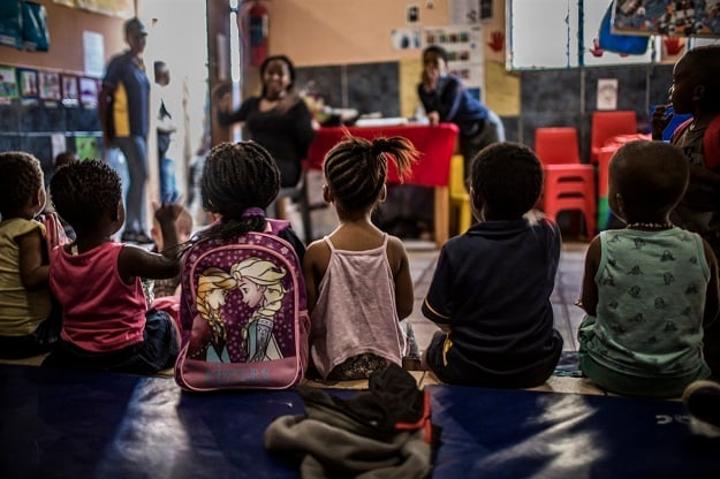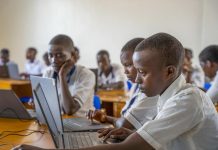Africa-Press – South-Africa. On the back of the Progress in International Reading Literacy Study (PIRLS) results – which showed 81% of South African Grade 4 pupils cannot read for meaning – Basic Education Minister Angie Motshekga says her department is engaging National Treasury to fund a well-resourced national literacy strategy.
While Motshekga, delivering her budget vote to the National Assembly on Thursday, sought a positive spin on the PIRLS results and blamed the Covid-19 pandemic, opposition MPs were not having it.
This comes days after PIRLS released its 2021 assessment outcomes, which showed South Africa was lagging far behind the world average and accounting for one of the lowest results.
Motshekga said the overall reading scores of our Grade 4 pupils, who participated in PIRLS 2021, dropped from 320 points attained in 2016, to 288 in 2021.
“Our Grade 4 girls performed better at 317 points; than their boy counterparts, who achieved 260 points.
“PIRLS 2021 shows that the longer the children stay in school, the better their performance. For instance, the overall reading score achieved by our Grade 6 learners, was 384 points; with girls attaining 408 points, and the boys attaining 359 points.
“Moroccan and Egyptian Grade 4 learners scored higher than our Grade 4 learners,” Motshekga said.
Morocco and Egypt were the only other African countries participating in PIRLS.
IN NUMBERS | SA produces one of worst global reading results among over 50 countries
“We must state that the longer our learners remain in the system, their performance improves steadily, as the PIRLS 2021 Grade 6 score shows – that is, an upward shift of 96 points when compared with the PIRLS 2021 Grade 4 score.
“A similar observation can be made when the Grade 4 PIRLS 2021 score, is extrapolated with the scores from an extensive national systemic evaluation pilot study we conducted in 2021 among Grades 3, 6 and 9 learners.
“The noticeable upward shift between the Grade 4 PIRLS score and the grades 6 and 9 systemic evaluation scores, is 28 and 23 points, respectively.
“This is an indication that our system self-corrects, the longer learners remain and progress through the phases of our system. No wonder the performance of our matric classes in the National Senior Certificate examinations over the years, has been on the rise.”
Motshekga said they took the national, regional and international assessment studies “very seriously”.
“Whilst acknowledging the devastating effects of Covid-19, these assessment studies continue to sharpen our understanding and plans on improving our performance on reading for meaning.
“The researchers and experts from government and research institutions confirmed that indeed reading for meaning is a very complex exercise, as it involves a number of interlaced variables, which range from teaching skills, teaching resources, learner and teacher wellbeing, parental and societal involvement, cultural contexts, nuances and sensitivities in the children’s learning journey.”
She added in 2019, the education sector reached a consensus that 10 pillars should anchor the national reading strategy.
After consultations and assessments, they will now reduce it to four pillars.
Motshekga said PIRLS 2021 had also observed “[learners] with higher home socioeconomic status, had much higher achievement than [learners] with lower home socioeconomic status” and “[learners] in schools that were not affected by reading resource shortages, have higher reading achievement, on average, than [learners] in schools that are somewhat affected by reading shortages”.
“Therefore, the consensus that the implementation of an Integrated National Reading Literacy Strategy must be well-resourced is justified. We are engaging the National Treasury in this regard.”
DA MP Baxolile Nodada said listening to Motshekga this past week left him feeling like Alice in Wonderland.
“More than half of Grade 6 children can’t read for meaning when tested on Grade 4 levels – these tests show that we have lost a decade of progress.
“You see minister, the thing with surveys of achievement is that they don’t care what you say you’ve done, they just measure what children actually know. And what they revealed was devastating.”
He added: “Minister, if children can’t read they are doomed before they even begin.”
Nodada said the Covid-19 pandemic could not carry all the blame.
“These devastating outcomes are of your making. Your department closed schools for far too long and didn’t have plans while they were shut.”
IFP MP Zandile Majozi added: “The regression of literacy in South Africa is at a crisis stage which requires immediate government interventions in order to effect a change. Yet there are little to no plans by the government to address this.”
She said there was not a specific national reading plan, no proper budget, no accurate reporting and “no progress in implementing vital interventions”.
“It does not take an expert to tell us that part of the problem in schools is that the learning environment for many is inconducive.”
FF Plus MP Wynand Boshoff said the department was to be congratulated for publishing such a difficult report.
“Our children are sharp, that’s not the problem. It doesn’t help to ascribe this drop in performance to Covid, before that, it wasn’t much better.”
He advocated for mother-tongue education.
ACDP MP Marie Sukers said the PIRLS results were “testament to the department’s inability to deliver on its goals”.
Responding to the debate, Motshekga added instead of hearing about alternative policy views, they “are forced to sit through empty noises”.
“There have been exciting reports on PIRLS, and I thought as members, or South Africans, talking about education, we even try to understand what this thing is all about.”
She agreed with Boshoff about the importance of mother-tongue learning “because PIRLS confirm it”.
“Their brain cells are relaxed, they are happier, and therefore they are able to process information.”
Motshekga said the country had to accept African languages must be promoted, and agreed with Boshoff that there was an overemphasis on English.
“I want to repeat, our kids can read. They can combine M and A to mean ‘man’. But very many of them, like many of us here, are not able to operate at a cognitive level where we are coherent, where we are systematic, we can make references, and that is why they are not passing.
“And instead of being condemned, chair, I think we should be commended as government for being a courageous government. There are only three countries that participated in PIRLS. The question is, why? Why have other people run away from PIRLS?”.
For More News And Analysis About South-Africa Follow Africa-Press






